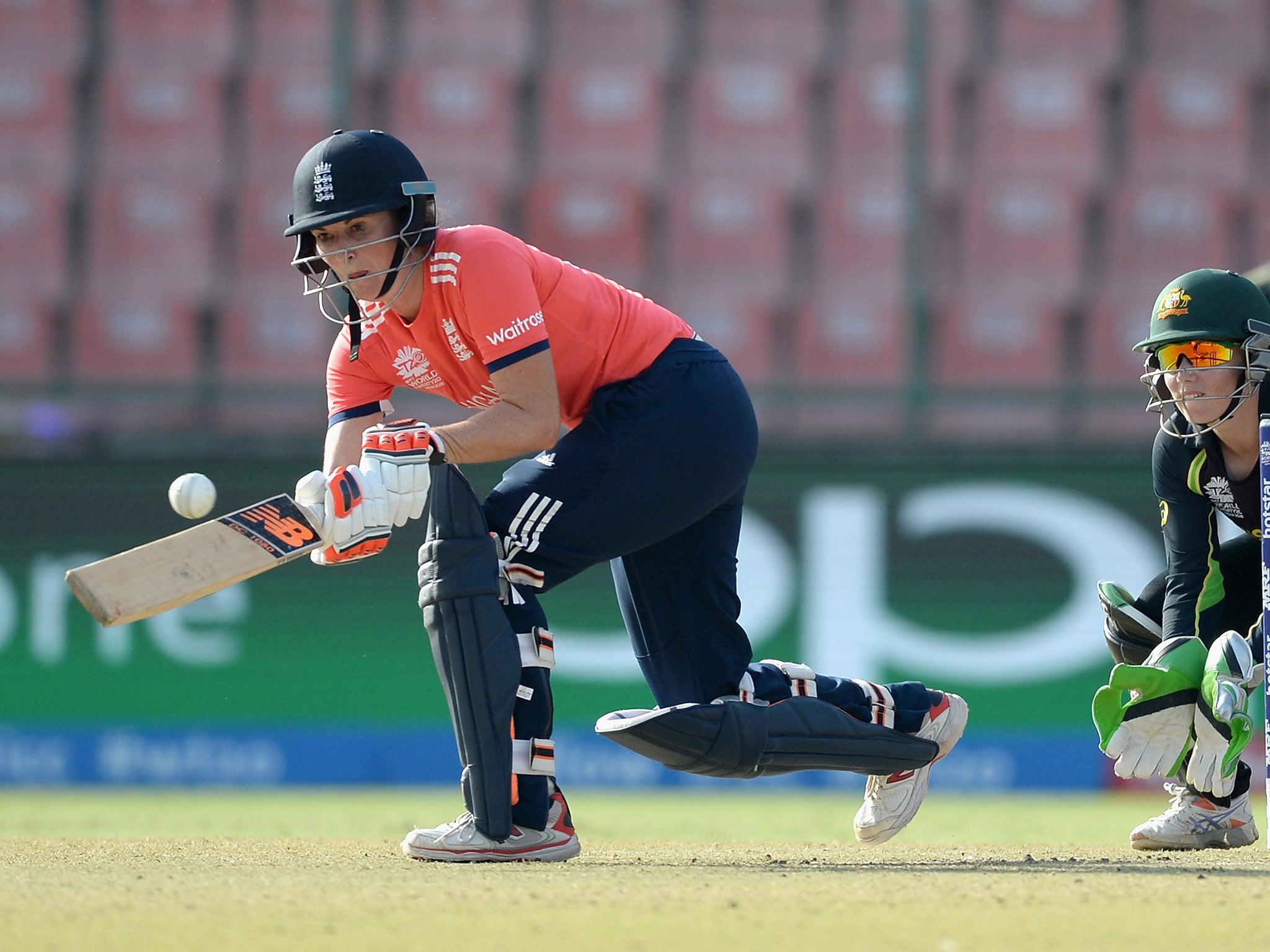Women's World Twenty20: England turn the collapse into art form as Aussies creep into final
England lost by five runs

Your support helps us to tell the story
From reproductive rights to climate change to Big Tech, The Independent is on the ground when the story is developing. Whether it's investigating the financials of Elon Musk's pro-Trump PAC or producing our latest documentary, 'The A Word', which shines a light on the American women fighting for reproductive rights, we know how important it is to parse out the facts from the messaging.
At such a critical moment in US history, we need reporters on the ground. Your donation allows us to keep sending journalists to speak to both sides of the story.
The Independent is trusted by Americans across the entire political spectrum. And unlike many other quality news outlets, we choose not to lock Americans out of our reporting and analysis with paywalls. We believe quality journalism should be available to everyone, paid for by those who can afford it.
Your support makes all the difference.Charlotte Edwards looked like she had seen a ghost. It has been seven long years since England won an ICC trophy, but never have they had to endure a defeat as chastening as this.
With seven overs left, England needed only 45 from 42 balls, and had nine wickets in hand. The relaxed demeanour of the players in the dugout told of a side who sensed a place in the final was imminent.
Then things became a little tetchy when Tammy Beaumont was well caught in the covers. That tetchiness rapidly gave way to panic. Players who had assumed they would not be needed to bat started scrambling for their pads. With each dot ball – and there were far too many – the equation became more arduous, and suddenly boundaries were needed, and lots of them. Katherine Brunt slammed a couple, but no one else could match her: no other boundaries were scored in the last seven overs. So emphatically had England squandered their domination that defeat was sealed before the final ball.
Australia had seized their moment magnificently. Led by their skipper, Meg Lanning, who removed both openers with fine catches in the deep, they were tigerish in the field. When Megan Schutt fired down the stumps to remove Gunn in the penultimate over, going a long way to making victory assured, it embodied Australia’s athleticism, while Schutt proved that her cutters are among the most skillful in the female game.
But none of this detracts from the underlying truth of England’s demise: it was of the self-inflicted variety. Rather than trust their ability to play orthodox shots, England seemed to obsess over reverse-sweeps, switch-hits and scoops. Scriver was bowled third ball exposing her stumps and attempting an extravagant lap shot. Sarah Taylor, who had played a sumptuous inside-out drive over extra cover for six, seemed to slip into treating the reverse sweep as her default shot, until it inevitably accounted for her, tamely gloving the ball behind.
The real question is why England needed such pyrotechnics when only chasing 133 to win. Coach Mark Robinson provided the answer. “We’ve got to get fitter,” he said. “We’re not fit enough and they outran us.” Australia faced five fewer dot balls than England, mirroring exactly their margin of victory and, as Robinson highlighted, were also more adept at running sharp twos on the large outfield.
If England’s collapse was calamitous, it was also less-than-unexpected. For England have regularly flirted with self-implosion all tournament, slipping from 42 for 1 to 87 for 8 against India, before squeezing home by two wickets, and then subsiding from 59 for 0 to 106 for 9 against the West Indies. They should have considered themselves warned, even as Edwards and Beaumount shared 67 in 10 overs.
In defeat England will invite questions. Two years of professionalism have brought a comprehensive Ashes defeat last summer, and a WT20 campaign in which they have made the collapse into an art form.
Most worrying is the sense of stagnation. Professionalism has not imbued England with vibrancy, but instead appears to have brought stasis. Since England lost to Australia in the final of the last WT20 two years ago, their last match before becoming professional, there has not been a single debutant in their T20 side. A chasm has emerged between the first batch of professional players and those underneath.
The chaos with which the match ended merely emphasised the serenity of Lanning’s batting. For the youngest Australian male or female captain in history, a semi-final against the Poms is her stage. How she relished it in scoring 55, striking six fours, as many as England managed on their own.
Join our commenting forum
Join thought-provoking conversations, follow other Independent readers and see their replies
Comments